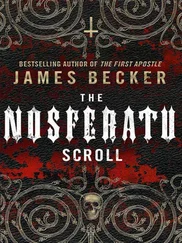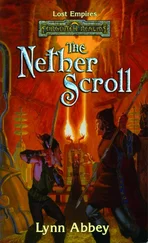Adrian D'Hage - The Omega scroll
Здесь есть возможность читать онлайн «Adrian D'Hage - The Omega scroll» весь текст электронной книги совершенно бесплатно (целиком полную версию без сокращений). В некоторых случаях можно слушать аудио, скачать через торрент в формате fb2 и присутствует краткое содержание. Жанр: Политический детектив, на английском языке. Описание произведения, (предисловие) а так же отзывы посетителей доступны на портале библиотеки ЛибКат.
- Название:The Omega scroll
- Автор:
- Жанр:
- Год:неизвестен
- ISBN:нет данных
- Рейтинг книги:3 / 5. Голосов: 1
-
Избранное:Добавить в избранное
- Отзывы:
-
Ваша оценка:
- 60
- 1
- 2
- 3
- 4
- 5
The Omega scroll: краткое содержание, описание и аннотация
Предлагаем к чтению аннотацию, описание, краткое содержание или предисловие (зависит от того, что написал сам автор книги «The Omega scroll»). Если вы не нашли необходимую информацию о книге — напишите в комментариях, мы постараемся отыскать её.
The Omega scroll — читать онлайн бесплатно полную книгу (весь текст) целиком
Ниже представлен текст книги, разбитый по страницам. Система сохранения места последней прочитанной страницы, позволяет с удобством читать онлайн бесплатно книгу «The Omega scroll», без необходимости каждый раз заново искать на чём Вы остановились. Поставьте закладку, и сможете в любой момент перейти на страницу, на которой закончили чтение.
Интервал:
Закладка:
‘The Holy Father has decided to introduce a pilot scheme whereby selected men and women of the Faith are to attend a state university. It is something I have opposed, Father Donelli, but the Holy Father is adamant.’ Pertroni returned to his desk but remained standing, looking down on Giovanni, his blue eyes cold and steely. Petroni did not enjoy being overruled, even by the Holy Father.
‘You, Father Donelli, have been chosen to lead the program and to provide periodic reports on its effectiveness or otherwise,’ Petroni said, with a chilling emphasis on the ‘otherwise’. ‘You are also to ensure that the more junior members of this program do not go off the rails.’
‘I already have two degrees, Excellency, in theology and chemistry,’ Giovanni said, more than a little puzzled.
Petroni’s eyes narrowed and Giovanni instantly regretted his response. ‘I am aware of that, Father,’ Petroni said slowly. ‘I have at least persuaded the Holy Father that theology continue to be taught where it should be, within the correctness of a Catholic university. You and three others have been enrolled in a new degree, the Philosophy of Religion. The details including the reporting requirements are in this folder. I require only one copy of each report and there are to be no duplicates. They are to be submitted for my personal attention and the reports are to include a general summary on the approach of each lecturer, highlighting where there are departures from the teachings of the Church.’
In years to come Giovanni would have cause to remember Archbishop Petroni’s paranoia.
‘You leave for the Universita Statale in Milano at the end of the year.’
With that Giovanni was dismissed, but it would not be the last time the ambitious Archbishop would impact on Giovanni’s career. As Giovanni would discover, the Holy Spirit worked in strange ways. Two weeks later Petroni was summoned to see the new Pope.
‘Lorenzo. Avanti. Avanti.’ The Holy Father waved Archbishop Petroni to a comfortable chair. ‘Now that I am settled in I have been going over the list of suggested new appointments and I think it is time we got you out of these dusty corridors in the Vatican.’
Petroni’s heart sank. His power base was firmly rooted here in the Vatican and the Vatican Bank. Immediately his disappointment swung to anger as he wondered who might have engineered the move to sideline him. Petroni struggled for control, but the Holy Father was smiling.
‘I need a good man in Milano, Lorenzo. You are a very good archbishop, but I think you would make a better cardinal, non e vero ?’
Not one given to any outward show of emotion, Petroni simply nodded in acquiescence, while inwardly he congratulated himself. ‘Thank you, Holy Father. Wherever I can be of service.’
Petroni left the Pope’s office with a feeling of satisfaction. If he had to serve outside the Curia, Cardinal Archbishop of Milano was a powerful post and he was on track to acquire the Keys of Peter. His satisfaction didn’t last long. It rarely did and back in his own office he slowly and meticulously worked his way through the personnel files of the other university candidates. So far nothing unusual – proven attachment to the Church, all living in regional areas of Italy. One candidate, Allegra Bassetti from Tricarico, did stand out academically – prizes for academic achievement, outstanding grades in all her subjects – a bright young thing. Petroni knew her education would come to nothing, she was a woman after all. He buzzed the outer office.
‘Put me through to the Bishop of Tricarico,’ he demanded, annoyed at having to waste his time organising a university scholarship for some poor nun in a village backwater. Petroni would soon find out that the power of a woman should never be underestimated.
CHAPTER TEN
Tricarico
I n southern Italy on the ‘instep of the boot’, the little town of Tricarico had stood for centuries, battered but unbowed, perched high on the side of a hill off the ancient Appian Way. The mountains had once been covered with huge oak forests but the progress of man had ensured the forests would never be seen again. Roman engineers had carved their roads through the thickly wooded countryside, and before them the Greeks had settled in the surrounding hills. The higher peaks of craggy granite were dusted with a light covering of early snow, the patchwork of fields seamed by deep ravines of limestone rising from the stony bed of the river that twisted and turned on itself through the valley.
The thirteenth-century Convent of San Domenico stood alone on a hill across from the town. The only connection between the convent and the town was an old wooden bridge at the bottom of a ravine that had been etched and scarred by the rains of countless millennia.
Allegra Bassetti crossed herself at the end of another hour of silent devotion and moved to the window of her small and sparsely furnished room, her dark hair hidden under her novice’s veil, her trim figure similarly hidden under her habit. The battered once-white buildings of Tricarico seemed less dirty in the cool autumn light. The jagged and broken terracotta roofs were tinged with orange as the sunset signalled the end of another day. Under the terracotta, the people of Tricarico lived as they had lived for centuries. Cheek by jowl. Nearly eight hundred families crammed into a maze of one-and two-room houses connected by alleys, stair-streets and tunnels filled with shopkeepers, shoemakers, blacksmiths, builders, peasants and padroni. At the top of the hill an old Norman tower stood sentinel over the town and just below it the Bishop’s faded and terraced palace formed the high side of the top piazza. Il Comune, a dirty grey building housing the Mayor and what passed for administration, stood on the left of the Bishop’s piazza. L’Ufficio Postale was on the right. The bottom piazza lay a hundred metres away at the other end of the town’s main and only street. On either side of it, shops in various states of disrepair leaned drunkenly against one another.
As the shadows grew longer Allegra’s thoughts turned to her family and she pictured her father, her mother and her three older brothers, Antonio, Salvatore and Enrico, hoes over their shoulders, all wending their way home after another backbreaking day in the fields. Her father, Martino Bassetti, as befitted his status as head of the household, would be riding the family donkey, precariously balancing a thatch of twigs for the evening fire on its neck. Her two younger brothers, Umberto and Giuseppe, would already be home from school and Nonna would probably be scolding five-year-old Giuseppe, the youngest of the six Bassetti children, who always seemed to be in trouble. Allegra said a silent prayer for her family and thanked God for each and every one of them, adding an additional ‘thank you’ that tonight she would be allowed to see them. On the last day of every second month, except when it fell on a Sunday or on a holy day of obligation, nuns who had family in the village were allowed to cross the rickety little bridge and go home for dinner. Normally Allegra looked forward to these days more than she would like to admit, but tonight she was troubled. An hour earlier she had received a message that the Mother Superior wanted to see her in her office at nine tomorrow morning, which made her wonder what sin she had committed that might have brought her to the attention of Mother Alberta.
By the time she set out for the town, Allegra was less troubled and she made her way down the clay and limestone path, on steps cut into the rock. Some of the early snows had melted and the cool clear mountain stream gurgled under the bridge as Allegra picked her way across the gaps where the weathered wood had rotted away. The climb through the gullies to the village was steep but at the top it merged into the cobblestones of an alley where a cacophony of sound echoed off the dirty walls of the houses. A dozen radios were tuned, or more likely untuned, to the only station that reached these parts and the crackling blare from the old speakers mixed with the cackling of chickens being shooed by Nonnas in black. Discordance was given an entirely new meaning as donkeys and the family pigs were herded to the back of the house towards a small bale of hay and a bowl of scraps. An argument had broken out in a house a little further up and the screams of abuse from a wife of thirty years and allegations of her husband’s lust for the much younger wife next door rose above the cries of the children, animals and the rattling of pots and pans. Southern Italy at dusk. Allegra paid the chaos no attention. The sounds were no different from the ones she had grown up with in the house that had been home to generations of Bassettis and she headed for the concrete steps that formed a ‘V’ over the opening to the stables and walked up to the entrance of the house.
Читать дальшеИнтервал:
Закладка:
Похожие книги на «The Omega scroll»
Представляем Вашему вниманию похожие книги на «The Omega scroll» списком для выбора. Мы отобрали схожую по названию и смыслу литературу в надежде предоставить читателям больше вариантов отыскать новые, интересные, ещё непрочитанные произведения.
Обсуждение, отзывы о книге «The Omega scroll» и просто собственные мнения читателей. Оставьте ваши комментарии, напишите, что Вы думаете о произведении, его смысле или главных героях. Укажите что конкретно понравилось, а что нет, и почему Вы так считаете.











